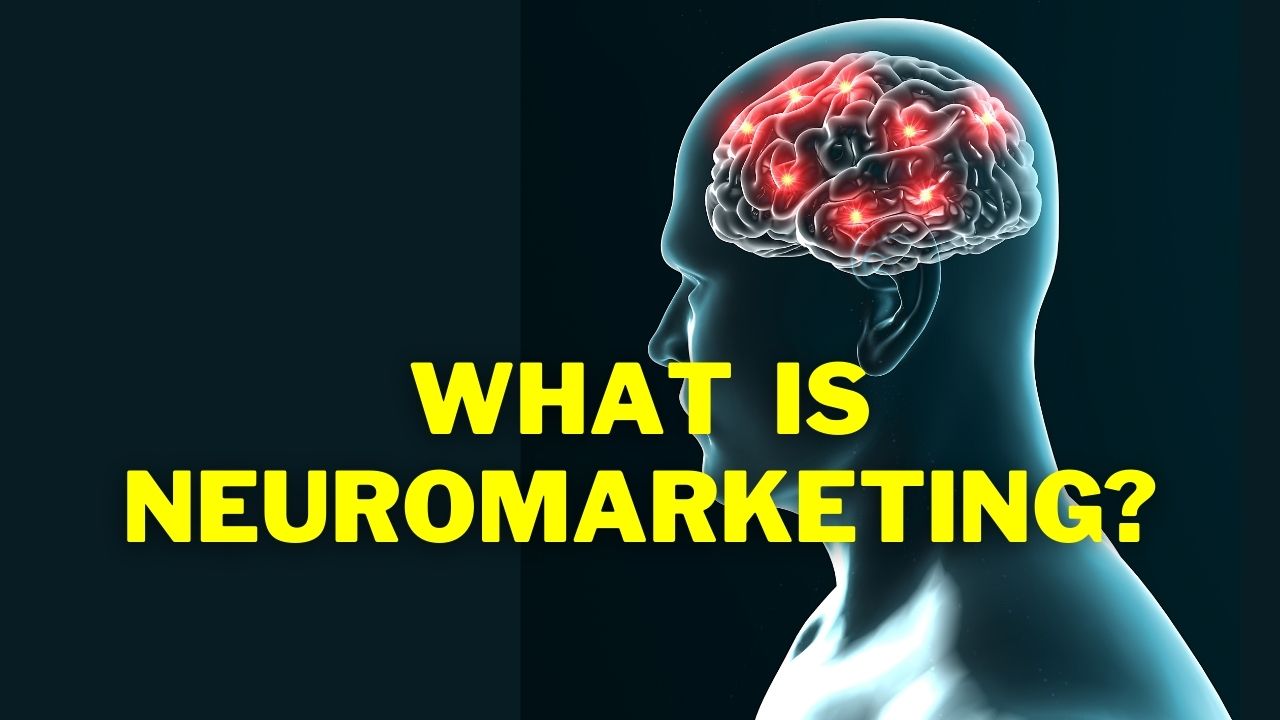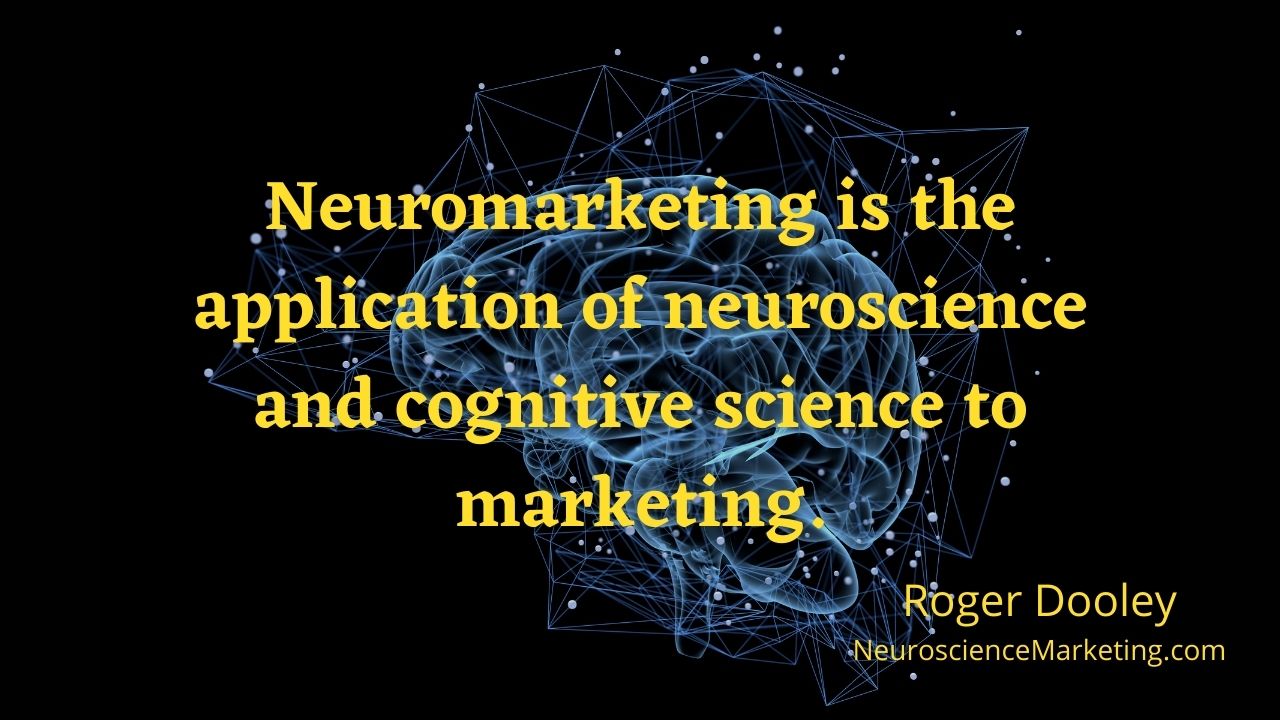What is Neuromarketing?
It's time for an updated definition of "neuromarketing."

What is neuromarketing? Here’s our simplest definition:
Neuromarketing is the application of neuroscience and cognitive science to marketing.
Listen to this article:
Neuromarketing is the application of neuroscience and cognitive science to marketing, says Roger Dooley, author of Brainfluence and the blog #Neuromarketing. Share on XNeuromarketing defined – longer version
Here’s an expanded definition.
Neuromarketing is the application of neuroscience and cognitive science to marketing. This can include market research that tries to discover customer needs, motivations, and preferences that traditional methods like surveys and focus groups can’t reveal.
Neuromarketing can include the evaluation of specific advertising, marketing, packaging, content etc. to more accurately understand how customers react at the non-conscious level. And, it can include applying the knowledge obtained from neuroscience and cognitive science research to make marketing more effective without testing specific ads or other materials.
“Consumer neuroscience” is sometimes used as a synonym for neuromarketing.

Does Neuromarketing Always Use Neuroscience?
Not everyone will agree with this rather broad definition. Some say, “If it’s not actual neuroscience, it’s not neuromarketing.” They prefer to use the term “neuromarketing” to narrowly include only the use of consumer neuroscience tools to evaluate specific advertising, products, etc. Early neuromarketing practitioners used tools to measure brain activity – EEG and fMRI, for example.
This limited definition breaks down a bit, though, since today some of the tools that are part of many consumer neuroscience studies, like facial coding, eye tracking and implicit testing, are behavioral in nature. Other common tools in the consumer neuroscience space measure biometric data like heart rate and galvanic skin response, which don’t directly measure brain or neural activity.
I include the application of cognitive science, which includes behavioral science, psychology, and other fields for one reason: neuromarketers want to understand and predict the behavior of their customers, and drawing artificial lines between disciplines isn’t helpful.
We acknowledge that customers often can’t or won’t accurately describe their preferences or decision-making processes, and that as marketers we need to understand their non-conscious thinking. We may achieve that understanding through fMRI images, with a clever lab experiment, by analyzing real-world behavior data, or some combination of approaches. Limiting ourselves to a narrow group of technologies makes no sense.
Watch:
What is consumer neuroscience?
In its early years, the term “neuromarketing” was promoted enthusiastically by some service providers but disdained and even reviled by many academics. There was little serious peer-reviewed research to justify the claims of some neuromarketers, and university researchers didn’t want to associate themselves with a topic they considered on a par with parapsychology or UFOs.
As early as 2012, some in the industry suggested rebranding neuromarketing as “consumer neuroscience” to sharpen the focus on neuroscience-based approaches and escape the sketchy reputation caused by overly optimistic providers.
Today, “consumer neuroscience” and “neuromarketing” are used interchangeably, although individuals and companies often prefer one term more than the other.
Over time, the negative connotations of the term “neuromarketing” have declined. A major study at Temple University took the field firmly out of the realm of pseudoscience and made the topic acceptable for serious academic inquiry. For example, Thomas Ramsoy of the Copenhagen Business School put the term in the title of his textbook on the topic, Introduction to Neuromarketing and Consumer Neuroscience.
Today, one can earn a neuromarketing degree at well-regarded institutions around the world, particularly in Europe. One example is the Masters in Neuromarketing at the Autonomous University of Barcelona, where I’m on the faculty. Another prominent program is at the Universita IULM in Milan, Italy.
Is Neuromarketing manipulative?
Wikipedia says, “Neuromarketing is a commercial marketing communication field that applies neuropsychology to market research, studying consumers’ sensorimotor, cognitive, and affective response to marketing stimuli. The potential benefits to marketers include more efficient and effective marketing campaigns and strategies, fewer product and campaign failures, and ultimately the manipulation of the real needs and wants of people to suit the needs and wants of marketing interests.”
This definition is on the right track, though I strongly disagree with the statement that the goal of neuromarketers is, “the manipulation of the real needs and wants of people.”
Neuromarketing isn’t inherently manipulative, rather, it is about understanding people’s real needs and wants. With that knowledge, marketers can develop better products and less wasteful advertising campaigns.
Is ALL Marketing Neuromarketing?
One of the challenges is that in some respects, ALL marketing is neuromarketing, since marketing campaigns are almost always trying to produce some kind of brain activity that will lead to a desired behavior (e.g., buying a product). That’s not a partularly useful way to look at neuromarketing, though, in the same way that saying “everything is chemistry” (since all living and nonliving things are made up of molecules) is true but not helpful. Hence, we exclude marketing efforts that don’t specifically incorporate neuroscience research – either through new tests or by using the data from past work.
What do you think? What would you add to or subtract from that definition?
[This is a revision of an article first published in 2006.]
